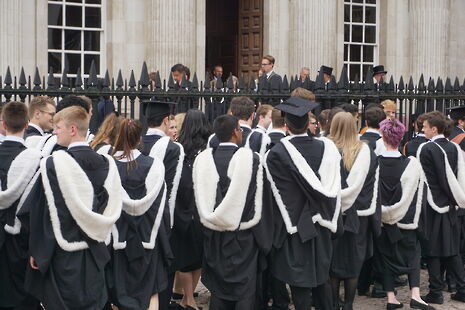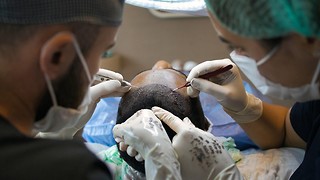Students warned of graduation selfie perils
Graduates may be inadvertently helping forgers when they share celebratory photos online

Students have been warned about the dangers of sharing graduation selfies online, due to concerns that the practice may be aiding counterfeiters produce fake degrees.
The warning comes from Higher Education Degree Datacheck (HEDD), a service set up in 2011 and used by 27 universities across the UK, which allows employers and universities to verify whether a candidate’s qualifications are all they seem to be.
HEDD fear that graduates sharing photos in which they pose with their certificates gives forgers access to up-to-date templates used by universities. They warn that logos, holograms, and signatures may easily be copied onto fake qualifications.
Jayne Rowley, Director of HEDD, said: “Each year we see thousands of graduation selfies innocently tweeted by students and retweeted by their universities. Added to the eternal gallery of images online, they give anyone in the business of counterfeit degree certificates the latest designs. We’re contacting university social media teams to advise them not to include certificates in their photo tweets and to advise their students the same.
“None of us would upload a copy of our passport or driving licence, nor give out our bank details. We should regard our degree certificates as precious and private information to be guarded.
"Significant time and financial investment goes into getting a degree certificate, don't throw that away by giving unscrupulous people a free pass to a graduate job.”
HEDD have also issued advice on ways to spot fake degrees. Aside from checking for misspellings, which is “a common indication of a fake certificate”, other tell-tale signs include Americanisms such as ‘Dean list’, or ‘fall’ and ‘winter’ to designate terms.
Forgeries may also be prone to using grander terminology than the real thing: “‘Cum laude’ is common instead of ‘honours’ as is matriculation date’ instead of ‘start date’”, say HEDD.
 Features / Meet the Cambridge students whose names live up to their degree9 September 2025
Features / Meet the Cambridge students whose names live up to their degree9 September 2025 News / Student group condemns Biomedical Campus for ‘endorsing pseudoscience’10 September 2025
News / Student group condemns Biomedical Campus for ‘endorsing pseudoscience’10 September 2025 News / Tompkins Table 2025: Trinity widens gap on Christ’s19 August 2025
News / Tompkins Table 2025: Trinity widens gap on Christ’s19 August 2025 News / New left-wing student society claims Corbyn support11 September 2025
News / New left-wing student society claims Corbyn support11 September 2025 Science / Who gets to stay cool in Cambridge?7 September 2025
Science / Who gets to stay cool in Cambridge?7 September 2025








